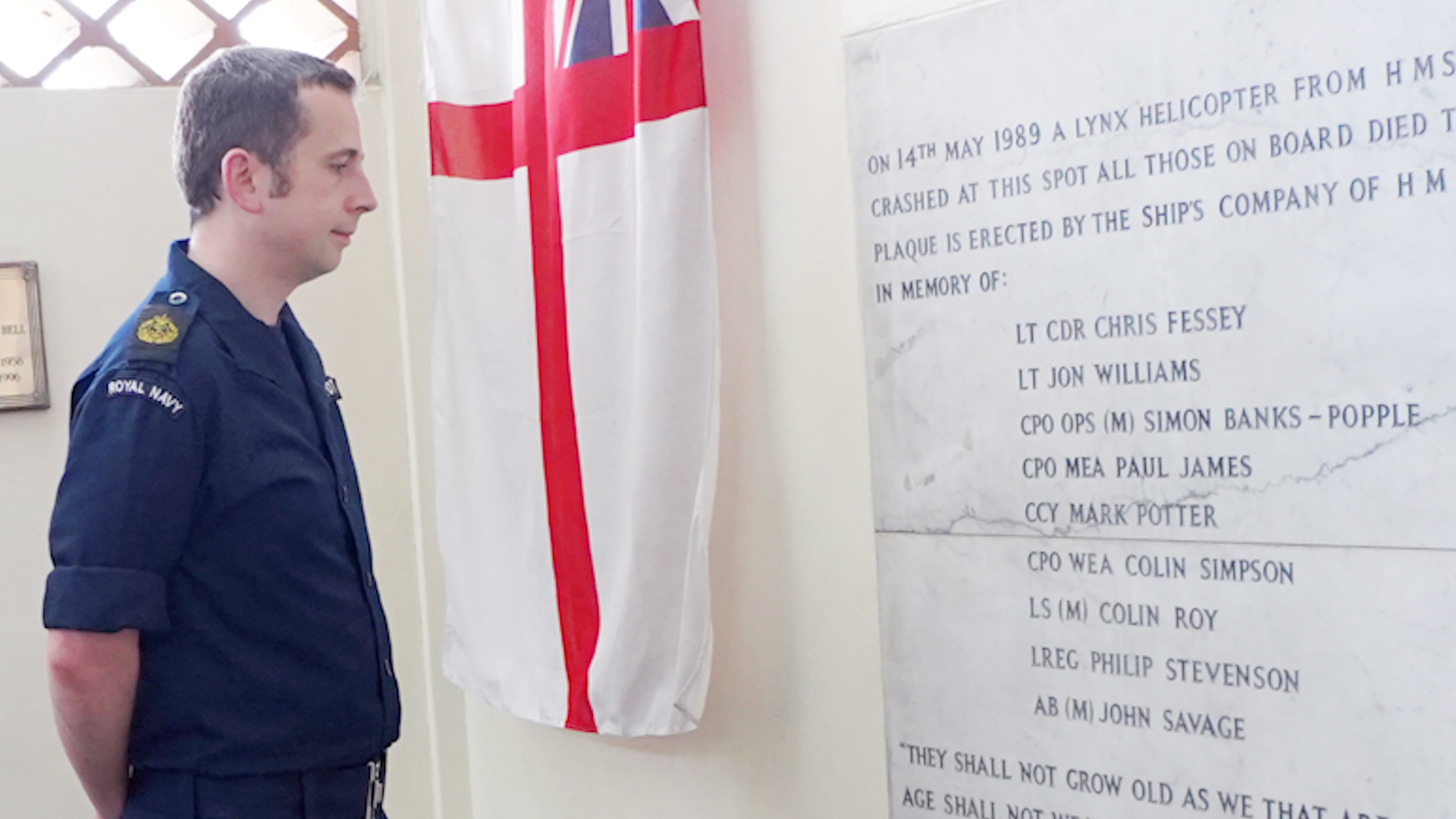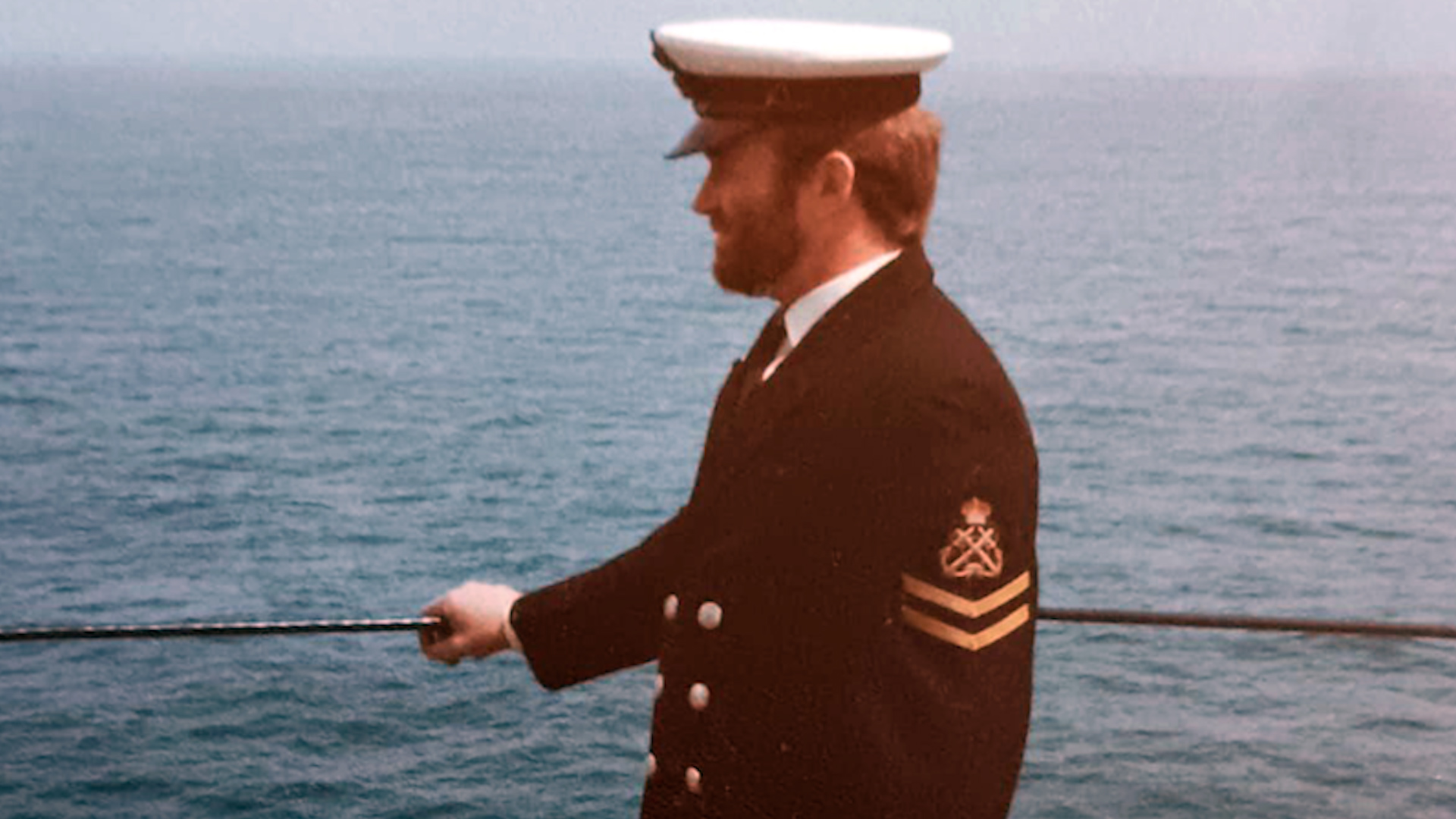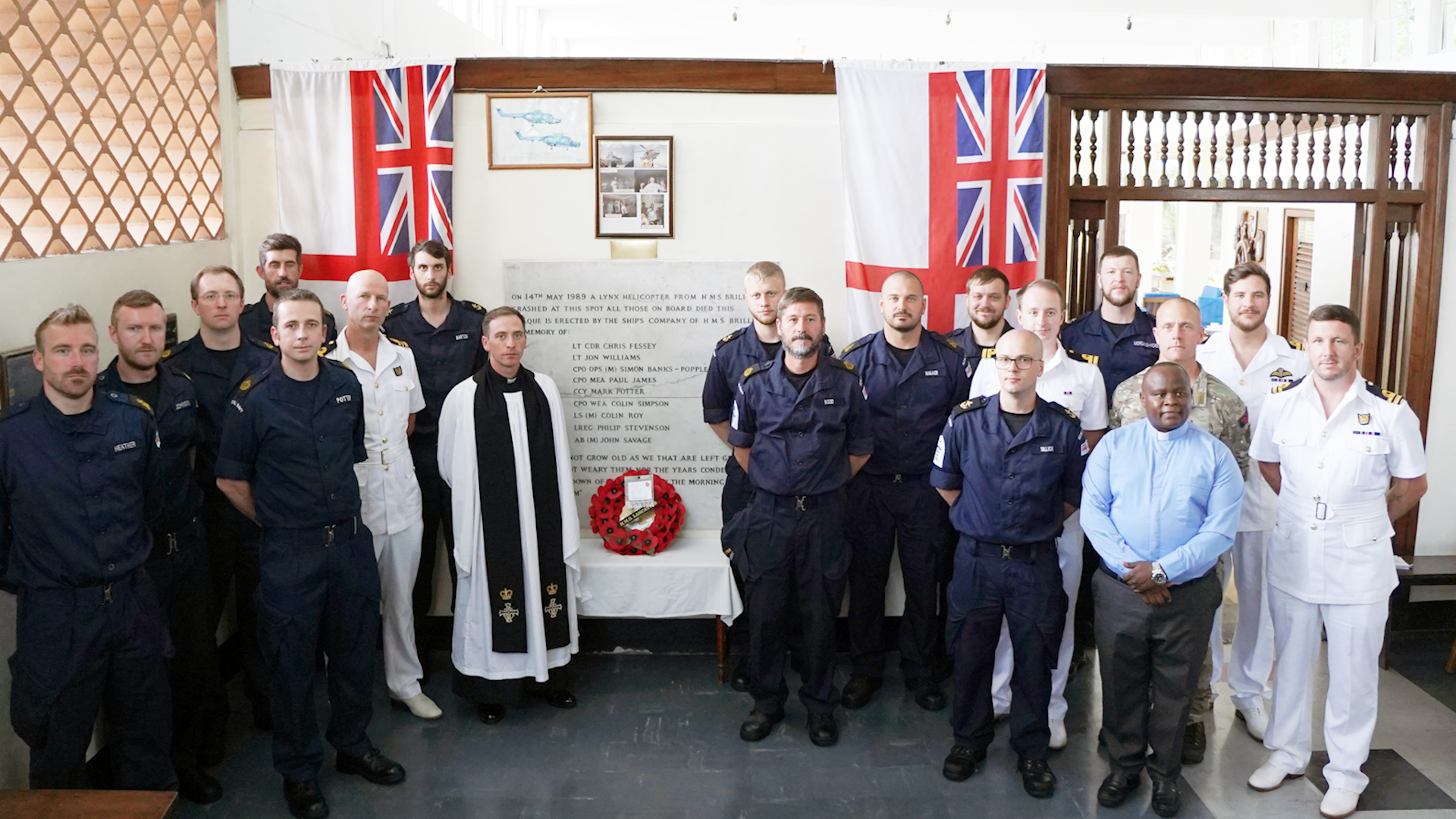
Sailor whose father died in HMS Brilliant's Lynx crash makes first visit to memorial

A Royal Navy sailor who serves on HMS Lancaster, whose father was tragically killed in one of the Fleet Air Arm's worst accidents, has made a poignant visit to his memorial site in Kenya.
Chief Petty Officer Mark Potter died in May 1989 when a Lynx helicopter he was on crashed on its way to Mombasa airport, killing all nine aboard.
Thirty-five years later, his son David, who followed in his footsteps and is now also a chief petty officer, finally got to see the Lynx crash memorial.
At the memorial, CPO Potter spent time honouring his father, and a remembrance service was held with air and ground crew who operate the successor to the Lynx aboard HMS Lancaster, the Wildcat, from 815 Naval Air Squadron at RNAS Yeovilton.
It proved to be an emotional experience, but also cathartic for him, who said: "It's honestly been the biggest honour of my career to be here today and represent the families and shipmates in remembering those we have lost.
"It's been 35 years since that terrible day and the loss never diminishes, but knowing that even after all this time they are still remembered in this way brings huge amounts of comfort and pride to me and my family."

The Lynx from 829 Naval Air Squadron had been heading to Mombasa airport to meet family and friends who had flown out from the UK while HMS Brilliant was on a break from patrolling the Gulf.
Some 18 miles from its destination the cabin door broke off when it was opened due to two missing ball bearings, striking the tail rotor, which in turn caused the rotor pylon to break off.
Impossible to control, the helicopter plunged into the scrub at Vipingo, killing all on board.
Those who also lost their lives were Lieutenant Commander Chris Fessey, Lieutenant Jon Williams, Chief Petty Officer Simon Banks-Popple, Chief Petty Officer Paul James, Chief Petty Officer Colin Simpson, Leading Seaman Colin Roy, Leading Regulator Philip Stevenson and Able Seaman John Savage.

A memorial corner, which features a large marble plaque flanked by White Ensigns and pictures of the men lost, has been dedicated in their honour and has become a place of pilgrimage for the crews of Royal Navy warships when they visit Kenya.
Portsmouth-based HMS Lancaster is on a long-term mission to the Gulf region.
Operating out of Bahrain, the frigate conducts frequent patrols of the Gulf and Indian Ocean to promote security in the region and stop the flow of illegal drugs out of the Middle East.









